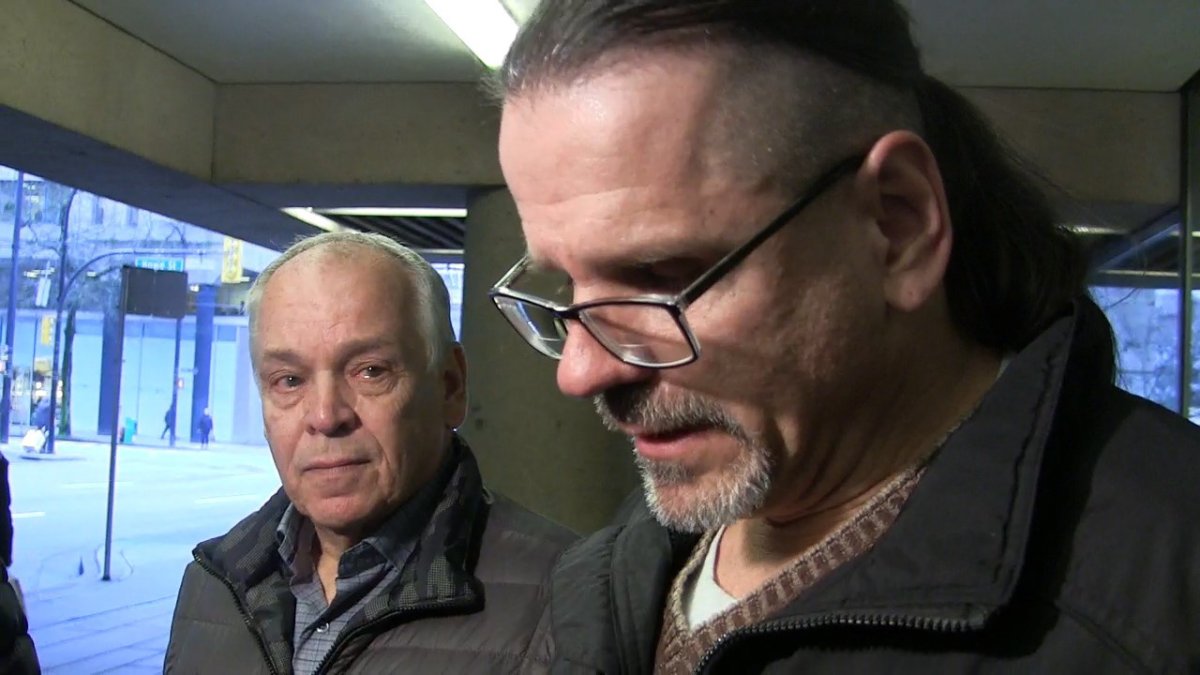VANCOUVER – A man convicted of killing his common-law wife in 1994 will be returning home to Newfoundland and Labrador after a B.C. Supreme Court judge granted him bail pending a federal investigation into a possible wrongful conviction.

“I’d just like to thank your lordship for being fair and just,” Wade Skiffington told Justice Michael Tammen on Wednesday as he stood in the prisoner’s box.
Skiffington was accused of murdering Wanda Martin in Richmond, B.C., soon after the couple moved to the province, and was convicted of second-degree murder in 2001 based on what his lawyers say was a false confession during a so-called Mr. Big police sting.
His father, Tom Skiffington, said outside court his son will live with him in a town called Paradise but that he felt a tinge of sadness along with his elation after hearing a judge say his son would be released after 17 years in prison.
“The only thing I’m missing now is my wife. It’s all she lived for, to see him come home. She passed away three years ago,” Skiffington said outside court while waiting for his son to walk out.
“I’m going to give him a big hug,” Skiffington said, adding he’d called his grandson Ian, who was speechless and grateful to hear his father would no longer be held behind bars.
Ian was 18-months-old when he was found unharmed with his mother’s body in her friends apartment. Martin had been shot six times.

Get daily National news
Skiffington applied to the Justice Department for a review of his case after losing an appeal of his conviction and the department concluded there was a likelihood of a miscarriage of justice, leading to a full investigation currently underway.
Tammen said that could take years but in the meantime, Skiffington does not pose a danger to the public and is not a flight risk so should be released to his family.
Tom Skiffington was required to post a $100,000 deposit and Tammen said his son must abide by conditions, including a daily curfew of 11 p.m. to 6 a.m.
“He should not be released to a federal institution,” Tammen said. “He should be released from here today.”
Skiffington was required to report to a bail office in Vancouver within two days to be instructed on his dealings with a probation officer in his home province after serving his sentence at a facility in Springhill, N.S.
The evidence seems to clear Skiffington of the crime, Tammen said, noting the man did not provide undercover officers with any new evidence and police had swabbed his hands for gunshot residue shortly after Martin’s death but found nothing.
A phone number Skiffington had written on his hand was still visible, suggesting he had not scrubbed it clean, the judge said.
Tammen suggested Skiffington would not have been convicted had his trial been heard after 2014, when the Supreme Court of Canada ruled in the case of another Newfoundland and Labrador man, whose confession to undercover police involving the drowning deaths of his three-year-old twin daughters was found to be inadmissible.
Murder charges were later withdrawn against Nelson Hart. Skiffington’s defence lawyer Philip Campbell, with the group Innocence Canada, said his client’s release during the federal investigation is a big step toward his exoneration after a “potent technique” police used to try and secure a guilty verdict.
Innocence Canada is a non-profit legal group that advocates for those convicted of a crime they didn’t commit.
“I want the public to listen closely to this case as it develops, to this judgment today and that proceedings that will follow it and keep an open mind that sometimes innocent people are convicted,” Campbell said.
Seven other similar bail applications have been filed in Canada and all except one have been successful, he said. Crown counsel Hank Reiner told the bail hearing Skiffington knew his common-law wife would be alone for at least 20 minutes while she visited her friend and that provided him an opportunity to kill her.
“It’s not over yet,” he said outside court Wednesday, calling Skiffington’s release an interim step.
“The reality is all the evidence was in front of the jury and they convicted him. So the issue here is really admissibility of the undercover confession.”







Comments